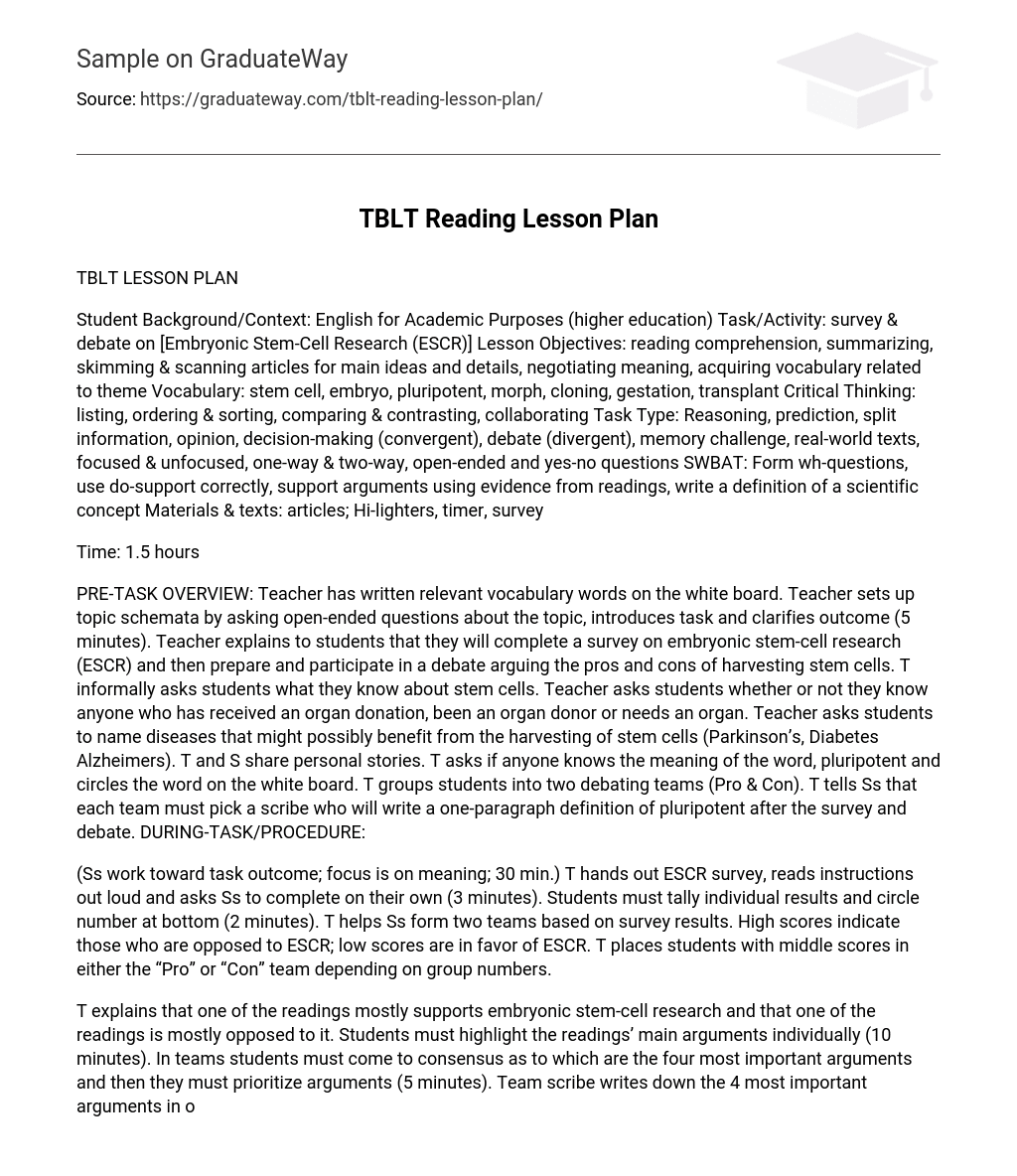Lesson Objectives: reading comprehension, summarizing, skimming & scanning articles for main ideas and details, negotiating meaning, acquiring vocabulary related to theme
Vocabulary: stem cell, embryo, pluripotent, morph, cloning, gestation, transplant Critical Thinking: listing, ordering & sorting, comparing & contrasting, collaborating
Task Type: Reasoning, prediction, split information, opinion, decision-making (convergent), debate (divergent), memory challenge, real-world texts, focused & unfocused, one-way & two-way, open-ended and yes-no questions.
PRE-TASK OVERVIEW
Teacher has written relevant vocabulary words on the white board. Teacher sets up topic schemata by asking open-ended questions about the topic, introduces task and clarifies outcome (5 minutes). Teacher explains to students that they will complete a survey on embryonic stem-cell research (ESCR) and then prepare and participate in a debate arguing the pros and cons of harvesting stem cells. T informally asks students what they know about stem cells.
Teacher asks students whether or not they know anyone who has received an organ donation, been an organ donor or needs an organ. Teacher asks students to name diseases that might possibly benefit from the harvesting of stem cells (Parkinson’s, Diabetes Alzheimers). T and S share personal stories. T asks if anyone knows the meaning of the word, pluripotent and circles the word on the white board. T groups students into two debating teams (Pro & Con). T tells Ss that each team must pick a scribe who will write a one-paragraph definition of pluripotent after the survey and debate.
DURING-TASK/PROCEDURE
T hands out ESCR survey, reads instructions out loud and asks Ss to complete on their own (3 minutes). Students must tally individual results and circle number at bottom (2 minutes). T helps Ss form two teams based on survey results. High scores indicate those who are opposed to ESCR; low scores are in favor of ESCR. T places students with middle scores in either the “Pro” or “Con” team depending on group numbers.
T explains that one of the readings mostly supports embryonic stem-cell research and that one of the readings is mostly opposed to it. Students must highlight the readings’ main arguments individually (10 minutes). In teams students must come to consensus as to which are the four most important arguments and then they must prioritize arguments (5 minutes). Team scribe writes down the 4 most important arguments in order of importance (1 minute). Ss must predict the opposing team’s four most important arguments, and rank them on list (3 minutes).
Teacher flips coin to see which team gets to go first. Students begin debating starting with the most important argument based on rank order (1 minute per argument). Students must debate from memory, preferably using their own words. Teams take turns.
POST-TASK
Based on readings, scribes from each team write arguments in rank order on board. Based on readings and input from team members, scribes write one-paragraph definition of the word pluripotent on white board. T asks students to explain orally why they think the word, pluripotent is significant (10 min). Teacher asks students to reflect orally on the debate and gives a homework assignment for them to write a one page written reflection of the debate process and experience.





